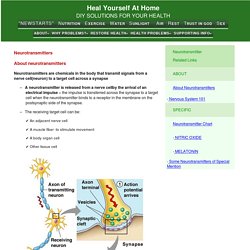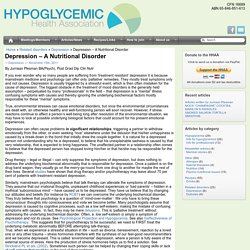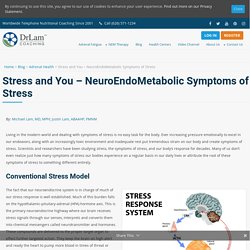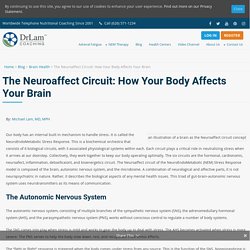

Adrenals / Cortisol. Anxiety. Overcome Depression For Good. E-Book: Solving stress in 10 steps - 15 Minutes 4 Me. Solving stress in 10 steps first explains the most important manifestations of stress so that you can recognize these in yourself or others.

Then, the author guides you through 10 practical exercises which each make up one step of a 10-step plan to free yourself step by step from negative stress, and to once again start leading the life which you want to lead. The first exercises help you to break out of the vicious cycle of worrying and negativity, after which you learn step by step to discover how your can find and start your own solutions, with the help of the solution focused method. To top it off, there finally are some exercises which help you to decide who you want to be and who you want to become after you have gotten rid of the weight of the negative stress. This book is thus a useful point between therapy and personal development. It helps you to free yourself from negative stress and to make the switch to self-growth and life joy. For whom? Information Pages: 165 pages Size: A4. Heal Yourself At Home. Neurotransmitters About neurotransmitters Neurotransmitters are chemicals in the body that transmit signals from a nerve cell(neuron) to a target cell across a synapse – A neurotransmitter is released from a nerve cellby the arrival of an electrical impulse –the impulse is transferred across the synapse to a target cell when the neurotransmitter binds to a receptor in the membrane on the postsynaptic side of the synapse. – The receiving target cell can be: ✔ An adjacent nerve cell ✔ A muscle fiber -to stimulate movement ✔ A body organ cell ✔ Other tissue cell.

How to Reduce Stress Hormones. Want to learn how to reduce stress hormones?

You’re in the right place. Reducing chronically high stress hormones is sort of my life’s mission. Stress is, well, stressful. Sometimes we even get stressed out about how much stress we’re under! (Speaking from experience here.) But you don’t want to get caught up in that vicious cycle. How stress affects your body - Sharon Horesh Bergquist. Let’s take a closer look at how the stress response works.

When your brain senses danger, your amygdala, the part of your brain that helps with emotional processing, sends an alarm signal to your hypothalamus. Acting as command central, your hypothalamus activates your sympathetic nervous system. This part of your autonomic nervous system leads to the release of adrenaline (also known as epinephrine) from your adrenal glands into your blood stream. All this happens in a split second. Hypoglycemic Health Association of Australia - Depression – A Nutritional Disorder.
By Jurriaan Plesman BA(Psych), Post Grad Dip Clin Nutr If you ever wonder why so many people are suffering from ‘treatment resistant’ depression it is because mainstream medicine and psychology can offer only ‘palliative’ remedies.

They mostly treat symptoms only and not causes. Depression is usually triggered by a stressful event, which is then often mistaken for the cause of depression. The biggest obstacle in the treatment of mood disorders is the generally held assumption – perpetuated by many “professionals” in the field – that depression is a “mental” illness confusing symptoms with causes and thereby ignoring the underlying biochemical factors mostly responsible for these “mental” symptoms. True, environmental stresses can cause emotional disorders, but once the environmental circumstances are dealt with, an otherwise healthy and well-functioning person will soon recover. Similarly, mainstream psychologists believe that talk therapy can alleviate the symptoms of depression.
Serotonin Deficiency: Signs, Symptoms, Solutions. 'Stressors' in middle age linked to cognitive decline in older women. A new analysis of data on more than 900 Baltimore adults by Johns Hopkins Medicine researchers has linked stressful life experiences among middle-aged women -- but not men -- to greater memory decline in later life.

The researchers say their findings add to evidence that stress hormones play an uneven gender role in brain health, and align with well-documented higher rates of Alzheimer's disease in women than men. Although the researchers caution their study was designed to show associations among phenomena, and not determine cause and effect, they say that if future studies demonstrate that stress response does factor into the cause of dementia, then strategies designed to combat or moderate the body's chemical reactions to stress may prevent or delay onset of cognitive decline. The findings are published in the July issue of the International Journal of Geriatric Psychiatry. Some 63% of the participants were women and 60% were white. Spira has consulted for Awarables, Inc. Symptoms of Stress: Introducing the NeuroEndoMetabolic Stress Response. Living in the modern world and dealing with symptoms of stress is no easy task for the body.

Ever increasing pressure emotionally to excel in our endeavors, along with an increasingly toxic environment and inadequate rest put tremendous strain on our body and create symptoms of stress. Scientists and researchers have been studying stress, the symptoms of stress, and our body’s response for decades. The Neuroaffect Circuit: The Essential Guide to How Body Affects Mind. Our body has an internal built in mechanism to handle stress.

It is called the NeuroEndoMetabolic Stress Response. This is a biochemical orchestra that consists of 6 biological circuits, with 3 associated physiological systems within each. Each circuit plays a critical role in neutralizing stress when it arrives at our doorstep. Collectively, they work together to keep our body operating optimally. The six circuits are the hormonal, cardionomic, neuroafect, inflammation, detoxificaiont, and bioenergetics circuit.